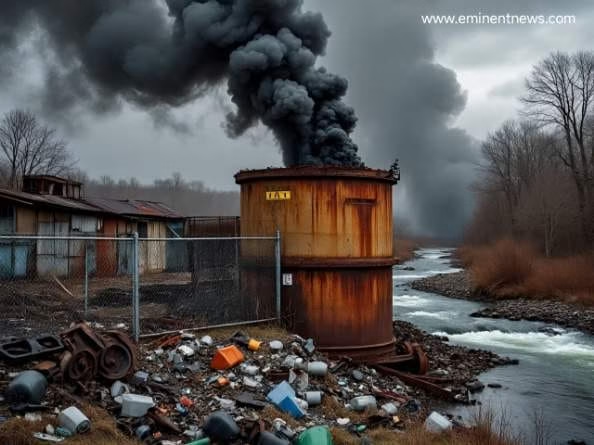The escalating global challenges of chemical pollution, waste generation, and broader environmental….
…. degradation necessitate a robust scientific foundation for policy decisions. In response to this pressing need, the United Nations Environment Assembly (UNEA), through its historic Resolution 5/8 in 2022, called for the establishment of a dedicated Global Science Policy Panel on Chemicals, Waste & Pollution . This panel is designed to provide independent, policy-relevant scientific information to policymakers, aiming to strengthen global efforts in sound chemicals and waste management and pollution prevention .
The Critical Science-Policy Interface
A significant gap has historically existed between cutting-edge scientific research on chemicals and waste and the timely translation of this knowledge into effective policy actions. Scientists have highlighted that the absence of a strong science-policy interface limits the ability to address these threats effectively . The new panel is intended to bridge this divide, ensuring that decision-makers have access to up-to-date scientific evidence to inform their strategies . Much like the Intergovernmental Panel on Climate Change (IPCC) and the Intergovernmental Science-Policy Platform on Biodiversity and Ecosystem Services (IPBES), this panel aims to provide a dedicated global science-policy interface for the pollution and waste pillar of the triple planetary crisis .
Addressing Chemicals and Waste
Chemicals and waste are pervasive features of modern life, posing direct threats to both environmental and human health . The global chemical industry is vast and continues to expand, with consumption and production rapidly increasing, particularly in emerging economies . The complexity of global supply chains and trade in chemicals and products further exacerbates the challenge . The panel’s core mandate includes contributing to the sound management of chemicals and waste by providing scientific expertise and guidance on identifying, assessing, and managing hazardous substances .
Advancing Pollution Prevention
Beyond managing existing chemicals and waste, a crucial aspect of the panel’s work will be to support pollution prevention efforts. It will assist in developing strategies to prevent pollution and minimize the negative impacts of chemicals and waste . This proactive approach is vital for safeguarding ecosystems and human well-being against the multifaceted impacts of chemical pollution .
Enhancing International Chemicals Management
The establishment of this panel is a significant step in bolstering international chemicals management. It will provide a global mechanism for policymakers to stay informed about scientific developments, thereby enhancing their capacity to identify and address threats in a timely manner . The panel is expected to work strategically alongside initiatives such as the Global Framework on Chemicals, providing scientific underpinning for global actions .
Supporting Multilateral Environmental Agreements (MEAs)
The panel is designed to support countries in their efforts to implement existing multilateral environmental agreements (MEAs) and other relevant international instruments . By providing policy-relevant scientific advice, it can help strengthen the scientific basis of policies related to chemicals and waste management, contributing to more effective and sustainable approaches to environmental protection . Its integrative position will be crucial in relation to major international legal frameworks and agreements .
A Focus on Solution-Oriented Assessment
A key characteristic of the new panel is its commitment to solution-oriented assessment. Its role is not just to identify problems but to provide actionable scientific advice that can guide decision-makers towards effective solutions . This includes supporting policymakers in identifying and prioritizing areas for research and development, and facilitating the translation of scientific findings into concrete policy recommendations . The aim is to ensure that policies are based on sound science and consider the diverse perspectives of stakeholders .
Conclusion
The agreement to establish the Global Science Policy Panel on Chemicals, Waste & Pollution marks a pivotal moment in global environmental governance. Hosted by the United Nations Environment Programme (UNEP), the panel represents a concerted effort to bring science and cooperation together to minimize the negative impacts of chemicals and waste and prevent pollution . As it moves towards its first plenary session to adopt its initial work programme, priorities, and partner engagement, this panel holds immense promise for securing a healthier and safer future for all by fostering a more robust, science-informed approach to these critical environmental challenges …for environment news click www.eminentnews.com


























